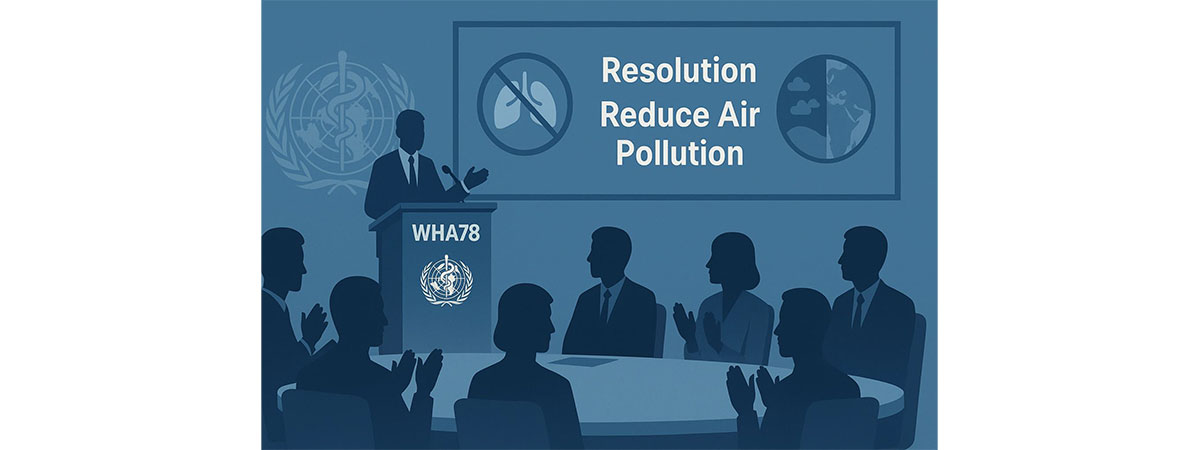WPA Applauds WHA78 Resolution to Halve Health Impacts of Air Pollution by 2040
The WPA welcomes the landmark resolution adopted at the Seventy-eighth World Health Assembly 2025 (WHA78), where Member States overwhelmingly endorsed an updated road map for an enhanced global response to the health impacts of air pollution. This decision marks a major step forward in safeguarding public health from one of the most pervasive environmental threats of our time.
The resolution, which updates the 2016 strategy under WHA69/18 and builds on the foundational resolution WHA68.8 from 2015, introduces the first-ever voluntary global target: to reduce the health impacts of air pollution by 50% by 2040.
Patients at the Frontline of the Air Pollution Crisis
Air pollution contributes to an estimated 7 million deaths annually, primarily from noncommunicable diseases (NCDs) such as stroke, ischemic heart disease, chronic obstructive pulmonary disease (COPD), lung cancer, and pneumonia. As air quality deteriorates globally, patients especially those with existing respiratory, cardiovascular, and other chronic conditions face worsening health outcomes and increased vulnerability.
“For the global patient community, this resolution is a much-needed recognition that clean air is not a luxury, it is a fundamental determinant of health,” said Hussain Jafri, CEO WPA. “Patients, particularly in low-resource settings, continue to suffer the most from preventable exposure to polluted air. This is a matter of justice and health equity.”
A Road Map with Real Potential
The updated road map offers practical guidance for national and local health authorities to:
Advocate for cleaner air and intersectoral action;
Integrate air pollution surveillance and health impact assessments into national health systems;
Build institutional capacity to respond to environmental health risks;
Protect communities particularly marginalized and at-risk populations from preventable health harms.
Importantly, the resolution also reinforces air pollution’s position as a leading risk factor for NCDs, now ranked alongside tobacco, poor diet, physical inactivity, and harmful alcohol use. This inclusion strengthens the global narrative around air quality as an urgent health priority not just an environmental one.
A Call for Inclusive Implementation
The WPA urges WHO and Member States to ensure that patients and civil society are meaningfully involved in the implementation of the air pollution road map at every level. This includes:
Engaging patient communities in public awareness and behavior change campaigns;
Ensuring accessible data and information about local air quality risks;
Designing policies that prioritize health equity, especially in vulnerable regions;
Mobilizing resources to support low- and middle-income countries where the burden is greatest.
Clean Air for All: A Shared Responsibility
As the global voice of patients, WPA emphasizes that action on air pollution is not only necessary but also achievable. The new target for 2040 sets a clear and measurable path for progress. However, success will depend on strong political will, cross-sector collaboration, and active engagement with the people most affected patients, families, and communities.


